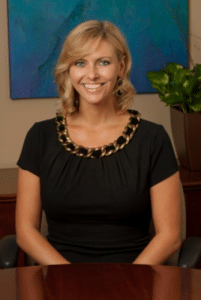By Lee A. Ernst, Associate, Johnson, Grossnickle and Associates
The foundation of a strong fundraising program is built on relationships. When your organization has a talented and dedicated staff, you have the key elements to form relationships with your donors.
What can you do to ensure you’re attracting and retaining your most valuable asset – people – while growing a strong culture of philanthropy?
What does the data show us about the current landscape of hiring development staff?
Recent research shows that the fundraising profession has a high turnover in staff positions and a dearth of qualified candidates to fill the void. Working with our clients, we hear stories of vacancies, long searches and short stays.
Here are some basic facts:
- The average tenure for major gift officer positions is 18 to 24 months, according to a study by the Education Advisory Board.
- According to the Underdeveloped Study, development director positions are also in a high state of turnover, with 50 percent of development directors indicating they anticipate leaving their position in the next two years and anywhere from 11 to 27 percent — depending on organization size — saying they anticipate leaving the field of development all together.
- The same study found that more than half (53 percent) of executive directors reported that their most recent development director hiring process attracted an insufficient number of candidates with the right mix of skills and experience.
What can be done to help attract and retain fundraising talent?
- Think outside the box. More nonprofits are seeking and recruiting talent with “non-traditional” fundraising backgrounds. Many other professions such as sales and marketing have transferable skills that apply well to relationship building in fundraising.
- Consider compensation incentives.Incentive-based bonuses can be a good way to help promote a team culture and encourage an entire team to hit a fundraising goal as long as it’s done without compromising the AFP code of ethics.
- Be flexible.Flexibility in the workplace allows staff to maintain a balance of work and home life. Rethinking policies to allow for earlier and later start times and accommodating working from home and part-time work can benefit the organization and accommodate staff.
- Orient and train new staff.Take the time to connect new fundraisers to your mission. Make the job about advancing the mission, not just raising funds. The core of good fundraising is building relationships, and if a gift officer isn’t excited or connected to the mission, donors will pick up on this.
- Consider promoting from within. Look for opportunities to home-grow your staff. Forward looking organizations can focus more on promoting from within to build future leadership. This will require a stronger emphasis on training and mentorship from those currently in leadership roles, but will pay dividends in the future.
- Build a culture of philanthropy.A shared sense of purpose and vision fosters board, CEO, and organization-wide teamwork. When everyone understands what development is working to achieve, all can see how their individual roles can further support and promote the mission.
- Communicate goals regularly.Conduct performance evaluations with feedback regularly and reinforce both short-term and long-term goals, in alignment with the strategic plan.
As the economy improves, jobless rates fall, and we see the long-anticipated surge of baby boomer retirements come to fruition, we can expect the scarcity of qualified development candidates to continue to present a challenge to hiring and retention. However, with ingenuity in attracting and adapting nontraditional candidates and a focus on training and connection to mission, organizations can position themselves to fill the void and find future staff members to help carry their mission forward.


